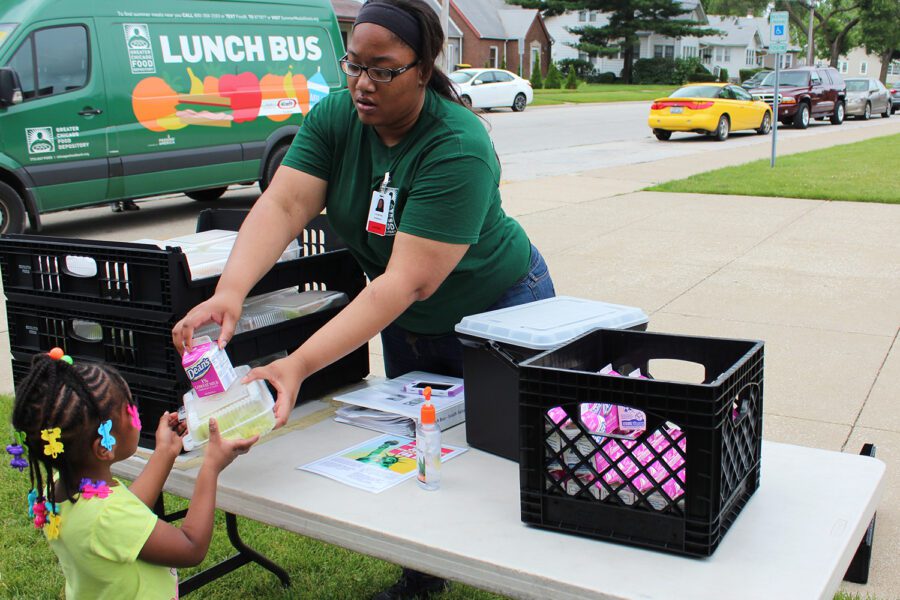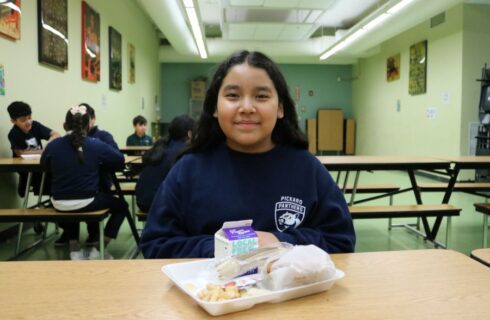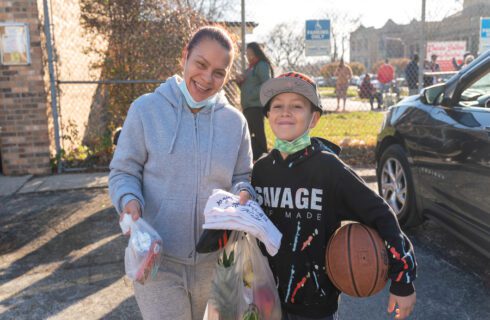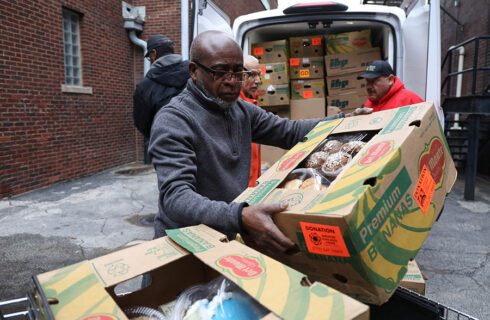For many schoolchildren, lunch and recess are often the highlights of the day, where they can enjoy their lunches, visit with their friends, and run around outside before returning to the classroom.
But what happens when the school year ends and most children stop receiving school lunches?
In far south suburban communities like Riverdale, Lansing and Calumet City, the answer to that question is sobering.
“The Lunch Bus is a good thing for this community, especially for Riverdale,” said Deasayn Dodd, a summer camp counselor with the park district in Riverdale, Illinois.
With a child poverty rate of 32.5 percent in Riverdale alone, programs like the Greater Chicago Food Depository’s Lunch Bus are essential to addressing the issue of food insecurity in the community. The Lunch Bus program runs three routes throughout Cook County, distributing fresh, pre-packaged lunches at 21 sites per day.
In nearby Calumet City, the situation is not much different. As the Lunch Bus pulls into Downey Park just past 11 a.m., several children are already eagerly waiting near the covered pavilion, anxious for their lunches. Twelve year-old Tramayne is one of those children.
“I really like it. It’s free, healthy and delicious!” said Tramayne.
With 1 in 5 children throughout Cook County facing food insecurity, situations like Tramayne’s are common. Because schools are closed for summer break, most children who normally receive free or reduced-price school lunches during the year no longer do. To address this issue, programs like the Lunch Bus ensure that children like Tramayne have continuous access to healthy meals, giving them more time to be kids and enjoy every moment of the summer.
The Food Depository is aiming to serve more than 400,000 healthy meals at 250 meal sites this summer through its children's programs, including the Lunch Bus.
Share This Post




